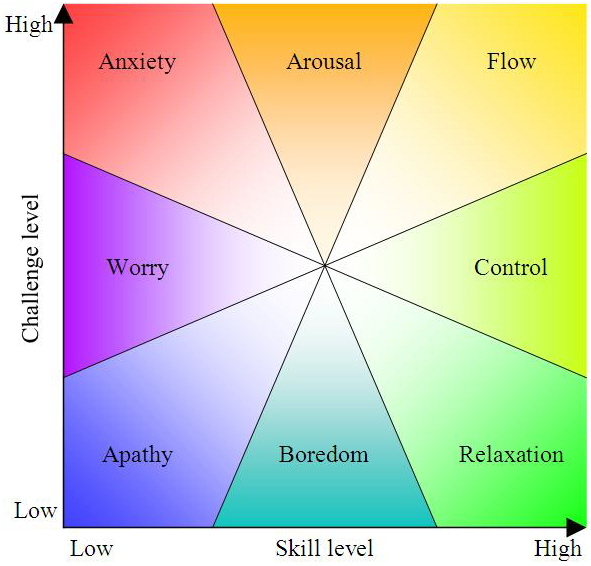
I enjoy Michael Neill's work.It combines business understanding, common-sense, and a little bit more.
His Genius Catalyst Tip-of-the-Day is often terrific. Here is an example of one of them.
My Favorite Prayer.
Success means we go to sleep at night knowing that our talents and abilities were used in a way that served others.
– Marianne Williamson, A Return to Love
When I was around 25 years old, I had the dubious distinction of being brought in as a "ringer" for a UK baseball team based in South London. The assumption was that as an American, I must be genetically crafted for optimal baseball action. Unfortunately, as I was only an average player when I stopped playing at 14 and this was a team made up of former minor leaguers and die hard British jocks, I turned out to be less of a ringer and more of a dead loss.
Our team batted first and keen to maximize the advantage I was sure to bring them, I was first up. 80 mile per hour fast balls whizzed by my head, and the highlights of my first at bat were a) not dying and b) actually touching the ball with my bat on one pitch. (The ball promptly ignored my bat and continued unimpeded on its journey to the catcher's mitt).
Disappointed, the team captain sent me out to right field to lick my wounds and I thought about what I could do to keep the day from being a complete waste. Suddenly, a prayer popped into my head:
Give me a chance to serve, using the gifts that I have.
Not being a particularly religious right fielder, I can't say who or what I was praying to, but the words kept coming like a mantra:
Give me a chance to serve, using the gifts that I have.
Despite my early failure, I knew I must have some relevant gifts for the task at hand. After all, I reasoned, I was a reasonably fast runner. I could throw a ball in something resembling a straight line. And while I was a great proponent of Dr. Arthur Slater-Hammel's 1950 study which "proved" that it is physically impossible for a human being to hit a baseball :-), I did know how to catch one. Suddenly I was excited instead of scared, leaning forward instead of back, and looking for opportunities to put my gifts to use instead of waiting for the chance to hide my inadequacies and run from my failings.
Within a few minutes of beginning my prayer, my first "chance to serve" came – a line drive over the second baseman's head. I ran in, stuck out my glove, and caught the ball to end the inning. Suddenly I was 'one of the guys' again, and I engaged with the game and my teammates in a whole new way for the rest of the day.
Although my exploits on the field quickly faded into obscurity, the power of that prayer stayed with me:
Give me a chance to serve, using the gifts that I have.
Here's a few distinctions I've made in living that prayer during the ensuing years…
1. Give me a chance to serve…
About a year ago, I was discussing with a friend my goal of increasing the readership of these tips to 100,000 people by the year 2005. "Oh," she replied. "You want to expand your ministry." After gagging on my cappuccino, I spent the next hour arguing that the word 'ministry' was totally inappropriate for what I do.
When I calmed down, I did some research. Turns out 'ministry' is a wonderful word. While I had always used it to refer to either religious proselytizing or the home of a government organization (like the Ministry of Defense or the lesser known but much more fun Ministry of Sound :-), "ministry" actually refers to the act of ministration – being of service to, aiding, and assisting those around us.
To expand your ministry simply means to be of more service to those around you, be it through your work, your family, or your faith. Here's how George Bernard Shaw put it:
"I want to be thoroughly used up when I die, for the harder I work, the more I live. I rejoice in life for its own sake.
Life is no "brief candle" to me. It is a sort of splendid torch which I have got hold of for the moment,
and I want to make it burn as brightly as possible before handing it on to future generations."
By thinking of our lives as our ministry, we will find ourselves surrounded by opportunities in any moment to be of service. And each opportunity for service brings with it the opportunity for fulfillment, meaning, and joy.
2. …using the gifts that I have.
I have always thought and taught that our gifts are those things in your life that come naturally to you, without any undue personal effort or struggle. Another way of identifying your gifts is to think of your strengths – those skills, abilities, or personality traits you exhibit which are so much a part of that you can't remember learning them and can't imagine not having them.
Martin Seligman is a former president of the American Psychological Association and long-time researcher into depression and learned helplessness who more recently turned his life's work on its head to become a pioneer in the field of Positive Psychology. Over the past few years, he and his research team have identified 24 'signature strengths' – core traits that are valuable in their own right but even more so when you put them into action in the service of your highest values and purpose.
Here are the 24 strengths:
|
1. Curiosity/Interest
in the world
|
2. Love of Learning
|
|
3. Judgement/Critical
thinking/Open-mindedness
|
4.
Ingenuity/Originality/Street Smarts
|
|
5. Social
Intelligence/Emotional Intelligence
|
6. Perspective
|
|
7. Valor/Bravery
|
8.Perseverance/Industry/Diligence
|
|
9.
Integrity/Genuineness/Honesty
|
10.
Kindness/Generosity
|
|
11. Loving/Allowing
Oneself to be Loved
|
12.
Citizenship/Duty/Teamwork/Loyalty
|
|
13.Fairness/Equality
|
14. Leadership
|
|
15. Self-control
|
16.
Prudence/Discretion/Caution
|
|
17. Humility/Modesty
|
18. Appreciation of Beauty
and Excellence
|
|
19. Gratitude
|
20.
Hope/Optimism/Future-Mindedness
|
|
21.Spirituality/Sense
of Purpose/Faith/Religiousness
|
22. Forgiveness/Mercy
|
|
23. Playfulness/Humor
|
24.
Zest/Passion/Enthusiasm
|
As Seligman says in the book Authentic Happiness:
"Herein is my formulation of the good life: Using your signature strengths every day in the main realms of your life to bring abundant gratification and authentic happiness."
In response to which I would simply say:
Give me a chance to serve, using the gifts that I have.
Today's Experiment:
1. Go to the Authentic Happiness website, and take the online VIA Strengths Survey. After identifying your top 2 or 3 strengths, look for opportunities to put them to use throughout the week.
2. Ponder these words from Quaker Faith and Practice – Advices and Queries :
Live adventurously. When choices arise, do you take the way that offers the fullest opportunity
for the use of your gifts in the service of God and the community?
3. Let your life speak."
If your life could speak, what would it be saying? What would you like it to say?
4. Just for fun, try your luck at hitting a 90 mph fastball online by going to the Exploratorium.
Have fun, learn heaps, and let your life speak!
________________________________________
Visit Genius Catalyst for more great tips!
His tip is Copyright 2001-2009 – Genius Catalyst / Michael Neill. All Rights Reserved.






 I was in Columbus Ohio last week for a series of meetings and strategic planning sessions.
I was in Columbus Ohio last week for a series of meetings and strategic planning sessions. 